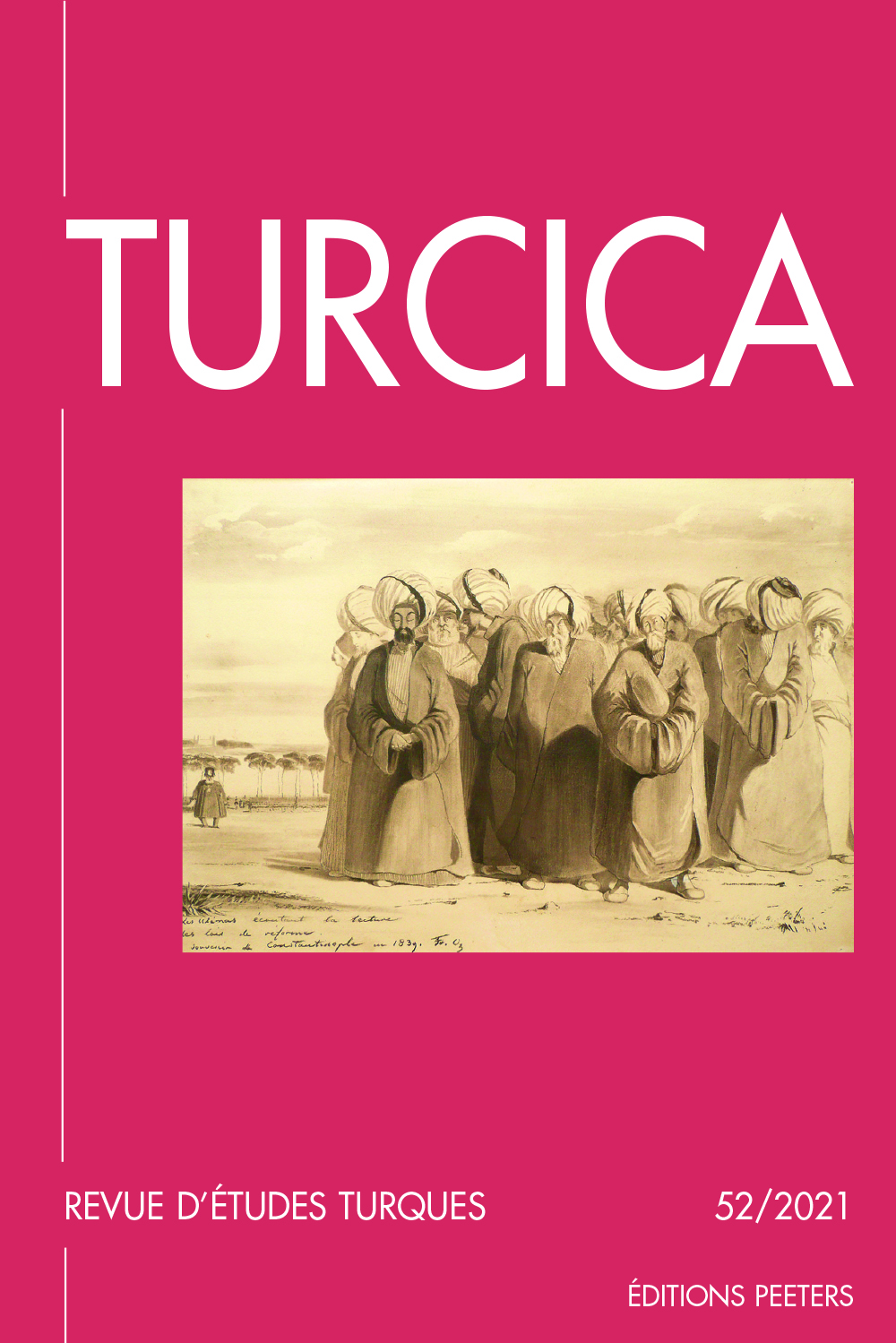 previous article in this issue previous article in this issue | next article in this issue  |

Preview first page |
Document Details : Title: La pratique du prêt aux officiers et aux hommes lors de campagnes militaires Subtitle: L'exemple de la campagne navale franco-ottomane de 1543-44 Author(s): VATIN, Nicolas Journal: Turcica Volume: 54 Date: 2023 Pages: 11-48 DOI: 10.2143/TURC.54.0.3292402 Abstract : Le registre E-12321 des archives du palais de Topkapı contient quatorze ordres enregistrés en janvier-février 1545 concernant la collecte de sommes d’argent dues au sultan par des hommes ayant participé à la campagne franco-ottomane de 1543-44. La pratique de prêts d’argent aux soldats ottomans en campagne, dont on a quelques attestations au XVIe et au début du XVIIe siècle, semble avoir évolué dans ses significations et ses modalités, parallèlement aux évolutions des finances de l’État et de la situation des timariotes. Dans la première moitié du XVIe siècle, il s’agit d’avances consenties en cas d’hivernage en campagne. L’analyse de notre petit corpus nous apprend que ces prêts peuvent être directs, mais aussi garantis par les officiers, ce qui facilite le remboursement après la campagne. Les sommes prêtées ne représentent qu’une maigre partie de la solde des hommes, tandis que, en 1543, les sancaḳbegi sont beaucoup mieux traités. Les âlâybegi quant à eux ne sont pas aidés en 1543, mais ces officiers supérieurs, qui apparaissent comme les plus proches et solidaires des hommes, se portent garants pour les sommes prêtées aux sipâhî à partir du Trésor. Au demeurant, le butin constitue la principale source des sommes permettant de satisfaire aux besoins de la troupe éloignée de ses bases: la guerre doit être financée par la guerre. Ces documents apportent également des informations sur la campagne franco-ottomane de 1543. On dispose désormais d’une liste précise des sancaḳ mis à contribution et on apprend que la mobilisation fut surtout forte dans celui d’Ankara et plus encore dans celui d’Eubée (qui dépendait du beglerbegilik des îles). Il se confirme également que si les Français approvisionnèrent les Ottomans, ils n’avaient pas prévu de payer les soldes et, malgré les exigences de Soliman, ne le firent pas. Aussi Hayr ed-Dîn dut-il consentir des avances, généreuses pour les officiers supérieurs, maigres pour la troupe dont on comprend mieux l’amertume et la colère. One can find in the defter n° E-12321 of the Topkapı Palace archives 14 orders registered in January-February 1545, which deal with the collect of money owed to the sultan by soldiers who had taken part in the 1543-44 Franco-Ottoman campaign. We have some attestations, in the 16th and the beginning of the 17th century, of the Ottoman practice of lending money to soldiers on campaign. Its meanings and procedures seem to have evolved according to the evolutions of the state’s finances and the timariots’ condition. In the first half of the 16th century, those loans were granted as advances on the pay in case of wintering on the field. The analysis of our little corpus shows that the money could be directly granted, but also guaranteed by officers, a procedure that made easier the repayments after the campaign. The amount of money that was lent was a small part of the men’s pay, while in 1543 the sancaḳbegis received more. As for the âlâybegis, those officers (who appear to be closer to the men) got no help, but guaranteed the Treasury money lent to the sipâhî. Actually, the spoils of war were the main source of the money used to answer the needs of the army when it remained far away from its base: war was to be financed by war. These documents also give information about the 1543-44 Franco-Ottoman campaign. We now have a precise list of the sancaḳs that sent soldiers, and learn that those of Ankara and particularly Euboea (which was part of the beglerbegilik of the islands) contributed the most. The documents also confirm that, if the French did provision the Ottomans, they had not thought of procuring money for the pay and did not do so, although this was what Suleiman had expected. This explains why Hayr ed-Dîn had to grant some generous advances to the officers and less generous advances to the men, who expressed an understandable anger. |
|


